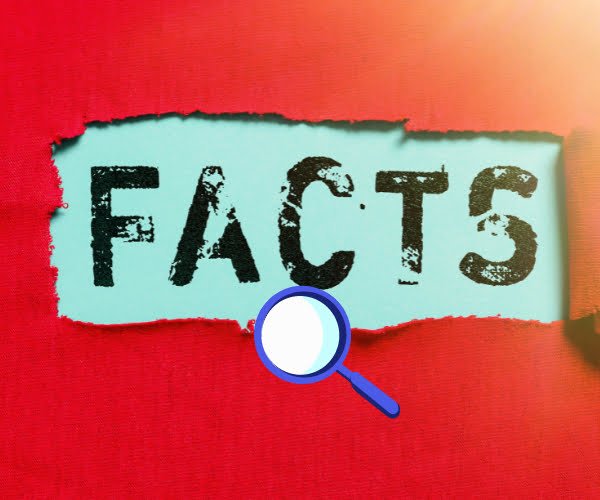
Fact-checkers check the credibility, bias, and correctness of a report. They are a crucial post hoc part of modern journalism. Since the proliferation of online journalism and its takeover of conventional paperback newspapers, fact-checkers have been more involved in helping media sources stay accountable. In addition, the rise of polarization and extremism has rendered a more frequent fact-checking necessary for more credibility and verifiability. Today, we will take a brief look at the history of fact-checkers, their political orientation, and the mistakes they have committed as fact-checkers.
Fact-checkers or fact-checking companies usually claim to be non-partisan and, in some cases, nonprofit organizations. They play a decisive role, especially in liberal countries, where judicial mechanisms rigorously protect freedom of speech. We usually split fact-checking into two main subgroups, namely internal fact-checking and external fact-checking.
Internal vs External Fact-Checking
Internal fact-checking is done by the publisher itself or by, the editor or the relevant department of the organization. In contrast, external fact-checking is done by third-party individuals or firms, such as Biasly.
Nevertheless, the current state of journalism and its proneness to fake news in the U.S. necessitates that external fact-checking remains the dominant one. Corporations promoting radical ideologies usually tend to manipulate information, reports, or facts per their self-interest and expediency. Thus, numerous online fact-checking companies have been established since the 2000s. These companies state that they continue their activities independently of any ideology, set of beliefs, or financial aims.
For example, the ongoing Russian invasion of Ukraine has given rise to countless fact-checkers with either pro-Russian or pro-Ukrainian alignments. Although most of them claim to be impartial, it is well known that the Russian administration under Putin spends billions of dollars to fund and control foreign partisan news sources inside and outside of Russia. However, So it is no surprise that countless American Twitter users confirmed the accuracy of the state-controlled Russian news outlet Russia Today.
The Rise of Independent Fact-Checking
American citizens gave more concern about the lack and the necessity of independent fact-checking organizations in the U.S. in the last couple of decades with the rise of social media and internet news consumption. As time went on, both sides of the aisle were more concerned with the other’s claims starting with parties led by Barrack Obama and then later Donald Trump. Trump’s discourse style was something new in American politics. It included brutal honesty, striking claims about past and then-current politicians, and grand promises about the future. Although his discourse caught a lot of attention and eventually led to him winning the election to become the 45th president of the U.S., there was significant doubt in liberal circles about the veracity of his claims. Thus, media bias companies and fact-checkers played a crucial role in de-sentimentalizing his speeches and checking whether the allegations he made were well-founded and obtained from a reliable source. Therefore, it was inevitable that fact-checkers have had a more significant role since the 2016 elections and their aftermath.
By their nature, fact-checking companies tend to be more liberal and usually stand on the left-of-center of the political spectrum. Populist news sources typically arbitrarily change the content of news pieces since populism, by its nature, aims to do what it thinks is suitable for the majority of the people. However, since populist circles are usually heavily influenced by several specific ideologies, they tend to be highly selective regarding what is suitable for the general population. For this reason, the role of fact-checking has lately been assumed by liberal circles as a way of coping with potentially hollow claims. However, this does not indicate that fact-checking companies are reliable. Since liberalism and left-wing are ideologies themselves, it cannot be argued that these news sources are impartial based only on their ideology. Liberals tend to fall into this fallacy or bias more than conservatives. This phenomenon is called the confirmation bias, where one tends to favor–or actively seek out–information that affirms its already existing beliefs. To avoid the confirmation bias, Biasly analyst ratings on articles are performed equally among all three groups to produce an average bias rating for each article. We also pride ourselves on producing analytics based on sentiment data and technology that contains no bias. Finally, Biasly is comprised of a diverse international team with liberal, moderate, and conservative members.
In conclusion, fact-checkers are a critical factor for journalism to continue solidly. However, whether fact-checkers can maintain their neutrality is also a doubtful issue. Because media monopolies are getting stronger day by day in the U.S. Due to financial concerns, it is getting harder for media outlets to maintain their neutrality. Accordingly, it is important to recognize that journalism can never be completely unbiased. Therefore, it should be aimed to minimize the biases of news sources and fact-checkers.






















